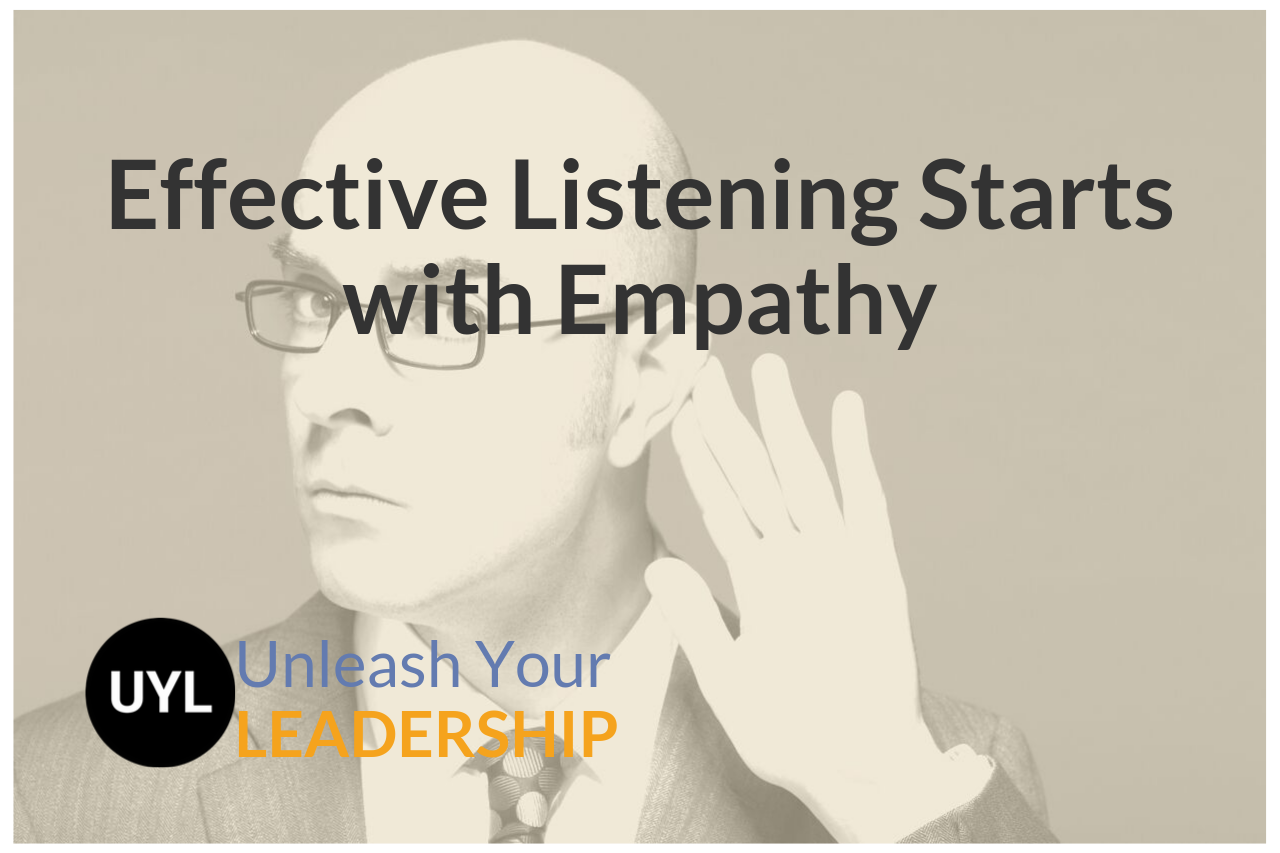Effective Listening Starts with Empathy

Image: by DAPA Images via Pexels
Which of the foundational communication skills underlies the more advanced and much sought-after leadership skills like thinking on one’s feet, influencing, and executive presence? Would you be surprised if I said it was listening?
Listening is one of the underrated skills of leadership. Leaders I work with often ask how they can get better at thinking on their feet, or developing greater presence, or influencing stakeholders better. And almost every one of these sought after skills requires the leader to be good at listening.
You have probably heard about the 5 levels of listening, which was popularised by Stephen Covey in his best-selling book 7 Habits of Highly Effective People*. Some leaders who read this assume that it is OK to be at the ‘attentive’ stage (Level 4), and that Empathic Listening (Level 5) is an ideal - meant to inspire but not practical to aspire for. I think they got it wrong.
What Covey describes as Attentive Listening is listening from our own point of reference. At this level of listening, we are focused less on what the other person is conveying, and more on what that means to us. An example of this is when a colleague asks us for help, we may lean forward and hear them attentively, but our inner dialogue is about the interruption, and how it will disrupt our own plans. So while our external attention is on the speaker, our inner focus is on ourselves.
Genuine listening, or Empathic Listening requires us to listen from the speaker’s point of view. This is where empathy comes in. Empathy is what allows us to truly connect with and understand the issue from the other person’s perspective.
A participant at a recent workshop shared this story:
"A colleague who had joined recently, asked me for help with a proposal he was working on. My first thought was to politely point him to the exhaustive documentation of the pursuit process available online. However, my instinct told me that was not what he really wanted, so I asked him what specifically he required help with. It transpired that from his previous dealings, he had some reservations about the financial strength of the customer, and wanted to discuss how to factor that into his proposal. This later proved to be an important conversation, as the implications were broader than the specific proposal he had sought help with."
The key point of the story is the instinct which made the leader pay attention to his colleague rather than politely brush them off. This instinct is empathy, which all of us are amply endowed with, but don’t always fully develop. If you have developed this capacity, you will find it easier to read other people, to see things from their perspective, to understand the meaning , not just from their words but also from their tone, facial expressions and other non verbal cues.
Ultimately, effective listening is about grasping the underlying meaning the other person is trying to communicate. It is being aware of what is said, and what is left unsaid. This needs us to go beyond giving superficial attention, and be truly empathetic.
What are some stories you can share about how listening with empathy made an impact?
Please leave a comment below or send me an email, and I’ll do my best to answer your questions.
